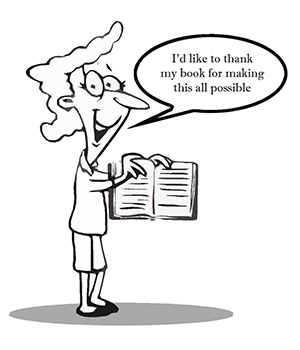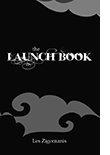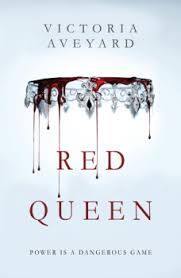

Month: March 2016
Welcome to the Busybird blog, where you can find helpful articles, updates, industry news and more. Make sure you stay up to date by signing up to our newsletter below.
Page Seventeen #12
March 31, 2016
In case you haven’t heard, let me shout it anew: the latest issue of page seventeen is now available in paperback form.
You might be aware that Issue 12 was the first page seventeen to be produced as a digital edition. Which is awesome. But page seventeen has always been about having that physical copy as well – it just feels a little more official having your name on the page rather than on the screen, right? It’s something to keep on that bookshelf the digital age keeps telling us will no longer exist once e-readers become ubiquitous, because the digital age can go sit in the corner while we hang on to our print books (barely-relevant rant over).
But if you haven’t checked out page seventeen yet, both Kindle and paperback editions can be snapped up by dropping us a line at Busybird – call at (03) 9434 6365 or email via our contact form here. It’s over thirty short stories and poems from both established writers and talented up-and-comers – pretty good mix for a weekend read.
If you’re interested in older editions of page seventeen some issues are still available from Busybird – check out this site for more info. Unfortunately some of the older editions are out of print, but Issue 8 onwards are currently in stock.
And spread the word! It’s the whole point of page seventeen, after all – giving emerging writers a platform to share their work, break into the publishing world and get some momentum on their writing careers. A little extra nudge here and there never hurt anyone.
Beau Hillier | Editor, page seventeen
Always Be Hustling
March 24, 2016 I’ve worked with a number of authors privately and through Busybird, and something many of them don’t seem to understand is that writing the book is the easy bit. It mightn’t seem that way, but at least when you’re writing, you have a clear objective: finish the book.
I’ve worked with a number of authors privately and through Busybird, and something many of them don’t seem to understand is that writing the book is the easy bit. It mightn’t seem that way, but at least when you’re writing, you have a clear objective: finish the book.
Then what? After all the editing and revision, and your book’s finally been printed, what’s next?
Many have the belief that the book will sell itself.
But that begs the question: Why?
You might have a great idea – it may be the next phenomenon – but why are people going to buy it? When it sits in a bookstore amongst hundreds of other books (and with more new books coming in daily), what is going to compel somebody to pick it up? What is going to alert not just one person to its existence, but the masses?
Luck?
Sure, that’ll help. And, you know, some things just take off, a maelstrom of right time, right place, right market. But you can’t rely on luck. Nobody really knows why things go viral. It just happens. And if you’re going to rely on blind fortune, you’re doing your book an injustice.
Being a success is the result of hard work and constantly selling yourself, constantly putting yourself – and your book – out there. If you can afford a publicist to help you with this, great. But publicists cost a lot of money (more than one thousand dollars a month), and that’s something most authors can’t afford, so you’re left to your own devices.
Let’s look at some options …
A Launch
 A book launch is when you announce your book’s arrival to the world, just the way you would if you had a baby. Have a party. Invite people. Broadcast it everywhere – social media, in relevant newsletters, even in forums that might be applicable to your book (e.g. bookstores, or if you wrote a nonfiction book about dogs, ask the vet if you leave some flyers there).
A book launch is when you announce your book’s arrival to the world, just the way you would if you had a baby. Have a party. Invite people. Broadcast it everywhere – social media, in relevant newsletters, even in forums that might be applicable to your book (e.g. bookstores, or if you wrote a nonfiction book about dogs, ask the vet if you leave some flyers there).
Review Copies
Send free copies of your book to reviewers – from the major newspapers to radio and podcast reviewers to bloggers. There’s a chance your book won’t be reviewed – after all, these people are getting lots of books to review. But you won’t know unless you try. Also, because these people have a backlog, make sure you send your book as early as you can.
Public Talks
Lots of places are open to authors talking about their work. Amongst them:
- the library
- bookstores
- community newspapers
- community radio
- podcasts
- magazines
- blogs.
Seek out any opportunity you can. Some forums may pay, but that’s not your goal here. You’re trying to develop goodwill and expand the awareness about you and your book.
Pitch to Magazines and Websites
If you’ve written a nonfiction book – say you’ve written a guide to real estate – then look at markets where you can pitch and write articles about your specialty. Somebody reads your article, they like what you’re saying, they’re going to track down your book.
You can still do this if you’re a fiction author. Diversify. You might’ve written an espionage novel where you researched CIA operations – you could write about the importance of research. Or the CIA. Alternatively, you could try submitting short stories to journals.
Look for Any Relevant Opportunities
I had one children’s author who wrote books featuring positive messages for kids – amongst them, eat healthy and naturally. She was regularly at farmers’ markets and schools, pitching her message and getting her name – and her books – out there. She was constantly pushing herself, her book, and her message. Think about how you can get yourself out there.
Open Mic Nights / Readings
Track these down. Read an excerpt from your book. Bring a stack of copies with you. If people like what they hear, they might ask to buy a copy.
Develop an Online Presence
Start a Facebook page: YOUR NAME – AUTHOR. Spruik what’s happening with your book, if you’re making appearances, if you’re working on something new, what’s happening with your book, etc. If you can afford it, start your own website and blog. Post extracts of your work. Go on Twitter. Follow people relevant to your work – other authors, agents, publishers. Tweet updates.
Ultimately …
The pattern’s easy to identify. Get yourself out there. Get your book out there. Look at ways to publicise yourself, either with the written word, or vocally.
If you were selling your house or your car, you wouldn’t just wait for people to stumble upon it. You’d advertise it. You’d be hustling constantly. The philosophy is the same behind your book.
The reality is you’re Joe Blow. Who knows you exist? Who knows your book exists? Seek out every possible opportunity to expand the world’s awareness to your existence.
Postscript: If you have time (about twenty-eight minutes), I highly recommend this Jennifer Byrne Presents …. Byrne interviews Bryce Courtenay, Matthew Reilly, Lee Child, and Di Morrissey about writing and selling themselves. If you’re serious about writing, watching this interview is invaluable.
How to Promote Your Book Launch for Free
March 17, 2016 Most people look at promoting as a struggle. But it’s about finding the right place to sell. This could be via blogging, social networking, pod casting or video. When you get down to the root of it, promoting can be easy.
Most people look at promoting as a struggle. But it’s about finding the right place to sell. This could be via blogging, social networking, pod casting or video. When you get down to the root of it, promoting can be easy.
Yes, there are markets out there where you have to pay to advertise, but wouldn’t you rather focus on getting the cheap way out and still have the same value?
This is where the power of social media comes in.
It is the perfect tool for authors to promote themselves and their book.
One type of media is creating an event on Facebook for a book launch.
1. Create an Event and Invite People
You need to create an event for your launch. With this, you can either set it as a public or a private invitation.
But, keep in mind that through invitation this will impact who will see the event, and if they like it then your invited guests can pass it on, “sharing” it so their friends will be able to see it too.
If set to private, then the event is only limited to those who are directly invited.
2. Set the Location for the Launch
You need to decide where this book launch will be located – country, city, etc. Think about whom your audience is, where they live – far away or local? The more specific you are, the better chance the promotion will have an impact.
3. Create a Headline
Creating a compelling headline will grab the audience immediately. It’s important to target the market. E.g.
‘One man, One Crow: A Pathway to Madness’
Think of it as trigger word + adjective + keyword = a promise well kept for the reader.
4. What Genre is Your Book
If your genre is romance there is no point asking people who are interested in thriller to come to the book launch. An idea would be to draw up suggestions. See what fits best and then use that to promote your book. E.g.
‘A stereotypical romance set in modern
society where a stripper provokes
an act of love through a lap dance.’
5. Genre Establishes the Tagline
Ideally, there should only be a few lines in the promotional text. It may be restrictive but do what you must to make the book launch count for something. Don’t use unconventional punctuation or all capitals.
In the film world we like to call this the ‘tagline’. Taglines are used to sell a movie to potential producers or directors. For you, they will be used to promote your event. E.g.
‘You don’t get to 500 million friends without making a few enemies.’
~ The Social Network ~
6. Finally, Create an Image
By attaching an image, you need to make sure that it’s there to entice the audience, so be creative. But, also be clear. E.g.
7. Future Considerations?
If you want to add a little extra to your promotion, you can pay Facebook to make an advertisement in the sidebar so that everyone on Facebook can view it. However, it costs around $200 monthly and you will need to have all the things I explained above, plus a link to where your book is sold.
Conclusion
See, promoting your book doesn’t have to be hard, if you follow these suggestions you’ll be able to advertise your book to other mediums as well. They basically hold the same formula as Facebook, but have some varying approaches. Mess around and see what suits you best as an author.
– Belle Savage
Editorial Intern
The Quality of Appreciation
March 10, 2016 Nowadays, we live in a world where branding is becoming paramount.
Nowadays, we live in a world where branding is becoming paramount.
Take films as an example – especially ‘reboots’. A concept is taken from decades ago and remade. Studios trade off the original’s currency to bring back people who are familiar with it, and its reputation to herd in a whole new generation or two of moviegoers. As for content?
Well, this is what’s often being forgotten. Hollywood has become a cookie cutter industry of making extravaganzas. They are now just so good at it. The existence of CGI (computer generated imagery) makes it easy to realise whatever’s required, whereas decades ago filmmakers had to be innovative in how they applied special effects.
Consider JAWS – a classic, and regarded as the movie that began the ‘blockbuster’. What some mightn’t know is that the shark was meant to feature throughout the film, but it just didn’t work. Exit shark. Enter some gorgeous storytelling, where we get Chief Brody (Roy Scheider) gazing speculatively at the deep blue sea, or shots of the ocean whilst John Williams’s haunting score pipes in. It creates a sense of foreboding that seeing the shark wouldn’t have replicated. Today, we’d just have a CGI shark – and be poorer for it.
The art of good storytelling has been diminished in film. There are still some great films but, often, we get franchises and blockbusters and movies that look gorgeous, with the story existing only as a framework for the special effects. But they look good, and that’s most of the trick. Twenty years ago, a crap film looked like crap with bad acting, terrible effects, and shoddy sets. Now, a crap film looks great. And that fools people into believing it must be good.
You just have to look at IMDb (the Internet Movie Database at http://www.imdb.com) to see horrible movies that are highly rated. The critics, who are usually the minority, regularly provide thoughtful and constructive analyses as to why the film didn’t work, only to be shouted down by the majority as being biased, ill-informed, or just stupid.
What’s happened is that a new environment has been cultivated, one that’ll nurture crap films, and ridicule those who criticise them. Worse, it’s self-congratulatory and self-sustaining, so that if you throw something mediocre in there, it thrives.
A similar environment exists with books in Australia, given our small numbers, and incestuous publishing community. Everybody knows everybody. Sometimes, it’s not a case of how good you are, but who you know. When a book comes out, reviews are often glowing – sometimes regardless of whether the book’s good or not, because it’s a friend or colleague writing the review.
Recently, I’ve read a number of books that are highly regarded – magnificently regarded. Some are great, and I can see why they’ve gotten the reviews they have. But some aren’t. Obviously, reading’s subjective. You might like something I don’t, and vice versa. That’s fine. But some of these books just aren’t well written, and that’s not subjective. Clunky, clichéd, full of exposition, contrived, shallow, poorly structured … the list goes on. As an editor, I shudder that, firstly, they got through the system, and, secondly, that they’re raved about.
When you don’t like something, it’s often easy to identify why. Something – or a number of things – will stand out. But when you like something, often it just comes down to a general feeling of contentment. Sometimes, it’s even a result of an unconscious obligation. Because others like it, you like it. It can’t be bad if so many people like it, can it?
Next time you like something, STOP.
Think about why you like it.
Try and identify the reasons.
Either you’ll find you don’t like it as much as you thought or, through that analysis, you’ll gain a new – if not higher – appreciation.
What We Hear …
March 3, 2016 We talk to so many prospective authors here at Busybird Publishing.
We talk to so many prospective authors here at Busybird Publishing.
They walk in, wide-eyed, selling the virtues of their writing. And that’s great. They should believe in their work. But there’re some things that we commonly hear that do concern us.
The top three are …
- 3. ‘You don’t get it.’
Like it went right over our heads, or we just didn’t understand, or just aren’t bright enough. Sometimes, it feels like the only reason authors submit for an assessment is so they can be told how great they are.
We look at manuscripts clinically, breaking them down for structure, plot, characters, voice, pacing, content, cohesiveness, and a whole range of criteria (depending on whether the work is fiction or nonfiction). We don’t cite things on a whim, or just to fill out the white space in an assessment and pad out our response. It’s because we genuinely believe something in the piece needs to be considered and reconsidered.
An example is a story we worked on years ago. Four editors looked at it and didn’t get a vital plot point, so I queried it with the author. Indignantly, he defended the story, and said he was sure his readers would get it. I told him if four of us didn’t get it, it’s unlikely a lot of his readers would, too.
You can take pride in your work, but once you’re sending it out into the world, you need to be brutally honest about whether it’s able to stand on its own, because you’re not going to be around to defend it or explain things.
2. ‘It doesn’t need to be edited.’
This is often qualified with:
- ’My whole family read it!’
’My partner read it.’
‘My friend read it, and they’re an English teacher.’
‘My neighbour read it, and they’re an editor.’
‘I’ve gone over it so many times.’
We have been told so often something doesn’t need editing, and yet have been able to open to a random page and find errors.
You will be the worst editor of your own work. Because you’re so familiar with it, you’re reading it as you’re expecting it to sound, rather than picking up visual cues (e.g. a spelling error, a misplaced comma). People who have experience in writing, English, or are just well-read, can only pick up as much as they know. Also, often they’re reading it with a reader’s eye (to be entertained and/or educated), rather than an editor’s eye (to seek out and identify issues).
Even a lot of people professing to be editors are just students who are studying, or writers who know the basics. A friend was looking for an independent editor and trialled three of them with a sample chapter. She then showed me what they’d done. Their work was good, but there were still oversights, or times they’d intruded on the text and rewritten it.
If you’re going to send your work out into the world, it needs to be pristine. The moment an error that would’ve been picked up in editing jumps out at a reader, you’ve lost them.
Find a good editor.
1. ‘It’s going to be a bestseller.’
Your story might be compelling, it might have an amazing plot, mesmerising characters, and be beautifully written; it might be a brilliant self-help/business/life-coaching book full of genius and innovation; it might be a nonfiction book that’s an original and captivating insight into some topic or other and every one of your friends might love it – whatever reasons you believe are going to make your book stand out and will compel readers to flock to it, you have to realise that, ultimately, you’re left with one truth: there’s no guarantee it’s going to be a bestseller.
And do you know why?
Because nobody knows what’s going to be a bestseller. Commercial publishers perform market analyses and yet still pass up books that become spectacular hits elsewhere (e.g. Harry Potter), and spend fortunes on signing books they think will be hits that then flop.
You can study the market, you can (believe you) have a good idea what it should do, but you can’t predict the market. You might as well try predicting what’s the next cat video to go viral on YouTube.
We all want to believe we’ll be special, we’ll be the one, our book will be a hit – sometimes, we’re so certain of these things we feel like we can will them into existence, but the truth is a lot of writers feel this way.
A lot.
Make sure you also keep your perspective.

